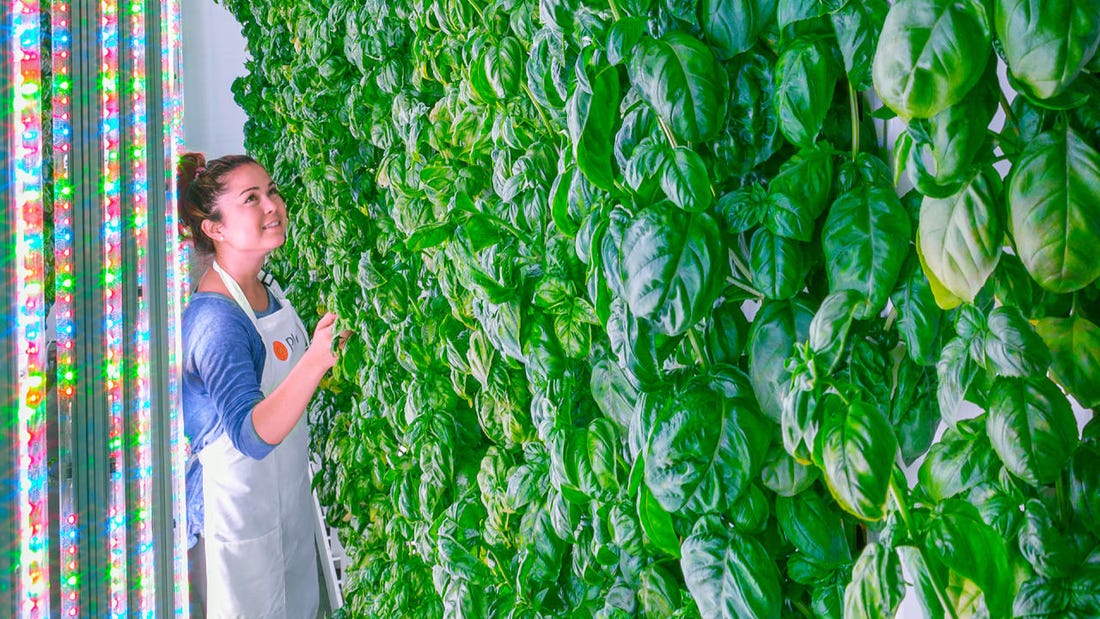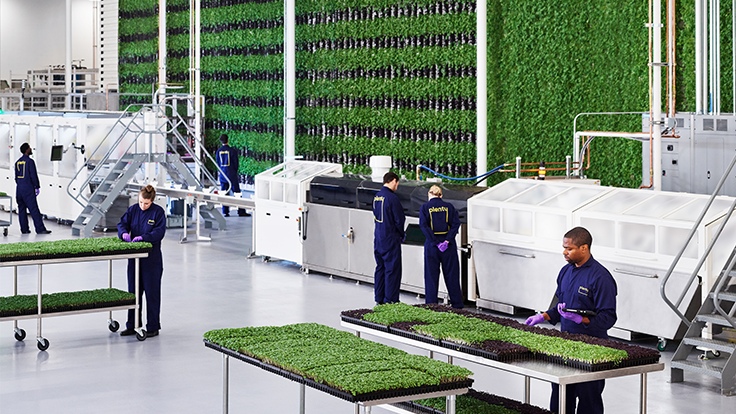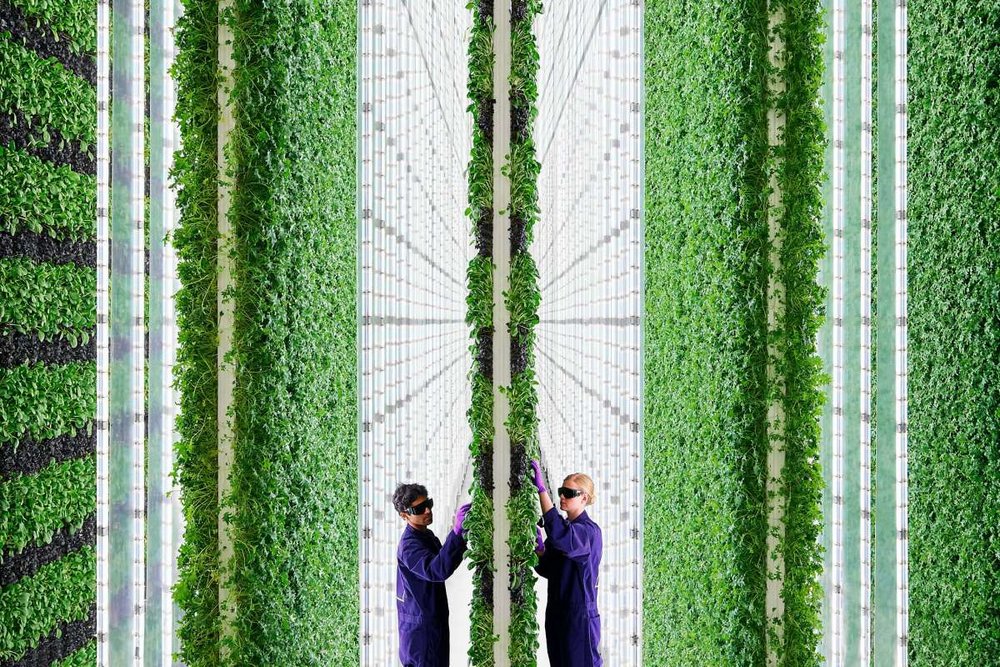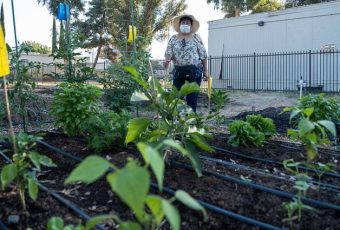Vertical farming is quickly becoming a trend that’s catching on all over, and it’s taking farming to a whole new…direction. Agricultural-tech startup Plenty has introduced a two acre indoor vertical farm that is able to produce a yield that would require 720 acres of a non-vertical “flat farm” with 95% less water to boot.

Vertical Farms Are The Future
Saving such a huge amount of water is massively important everywhere, but especially in states like California where droughts are common. The company is set to provide fresh produce for 430 Albertsons supermarkets across the state.
Of course, as this is a ag-tech company, Plenty uses a lot of automation and robotics to ensure that the plants are perfectly grown, regardless of the time of the year.
Indoor vertical farming has many benefits, from reducing logistical issues like transporting across long distances to being a more environmentally friendly farming option.
On Plenty’s website, it is explained that the technology “frees agriculture from the constraints of weather, seasons, time, distance, pests, natural disasters, and climate.” That creates nutrient-rich plants that are GMO-free at large scales and have “extraordinary flavor.”

Vertical Farming Uses 95% Less Water Than Traditional Farming
Discoll’s, the largest fresh berry farmers in the United States, has agreed to use Plenty’s vertical farms to grow their strawberries year round.
Plenty’s method for growing baby kale, lettuce, and other greens involves cultivating them on huge vertical racks that are move by robots. This method received a $400 million investment from SoftBank, Amazon’s Jeff Bezos, and also Google’s Eric Schmidt.
By reducing long distance transportation, carbon emissions will be significantly reduced as well. Plenty allows produced to be brought from local warehouses instead of from farms that are nowhere near the cities selling the produce.

Plenty’s Vertical Farm
The vertical farms grow crops that are non-GMO, don’t use pesticides or herbicides, and also recycle the water that is not used in the process.
The need for this type of farming will only increase in demand, especially due to unpredictable events like wildfires, pandemics, and more.
As the climate continues to change and these types of disasters come without warning, companies like Plenty will help us prepare our food supply so that we won’t find ourselves without fresh produce during dire times.







